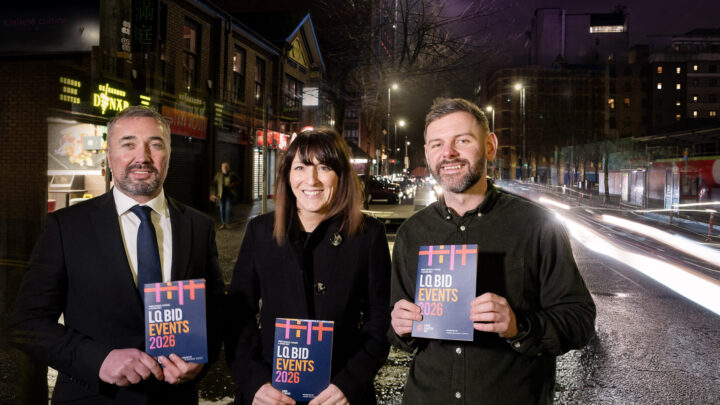News / 20th September 2019
Working together for shared solutions
Last month the Linen Quarter BID invited Sir Jonathon Porritt, a global leader for sustainability, to deliver a keynote address to our City.
When we look back, 2019 will be seen as the year when the climate debate became a mass movement for change. 52% of people are “very concerned” about the issue (up from just 18% in 2014); with both the UK and Irish legislatures, and numerous local authorities, declaring a climate emergency. The school strikes pioneered by Greta Thunberg have seized people’s imagination and today everyone is being invited to join the call.
The science speaks for itself. 94% of the world’s warmest years have taken place since 2001. Around 40,000 lives in the UK are cut short every year due to air pollution. Plastic waste, deforestation and melting ice-sheets are visible reminders of our poor stewardship.
Yet the message today should also be one of hope.
In Northern Ireland we are experiencing an energy revolution. 44% of power is now generated from renewable sources, up from 3% in 2005. This is the most rapid energy transformation in the world. And the reason?
Primarily, the Carbon Tax imposed by the UK Government in 2013, which has all but killed generation from coal. In addition, as the volume of renewables goes up, price comes down – for example the cost of solar cells has fallen 90% in a decade.
Secondly, the direction of travel for transport is positive. The sale of petrol and diesel cars in the UK will cease by 2040 and the major brands have responded, with billions now being invested into electric vehicles. It is likely that EV purchases will grow exponentially, helped along the way by zero company car tax. In Belfast the phenomenal success of the Glider has reduced thousands of car journeys every day, resulting in the highest level of public transport use in 20 years.
Thirdly, there is much greater awareness and genuine engagement at community level. People are actively considering issues like food consumption, recycling, and single use plastics, and making informed purchases that meet their aspiration for a more sustainable lifestyle. This consumer revolution will transform the market and help improve the environment.
The goal of creating a zero-carbon future, which has now been adopted as government policy, will be expensive and complex. But it will also create a world of opportunities, and it is likely that millions of future jobs will be driven by the green economy. Some of these, from clean energy to food technology, are already providing highly paid employment in Belfast.
We should note it would be a fundamental mistake to confuse the urgent need for climate action with regressive concepts like degrowth. A properly regulated free market, as part of a technology driven liberal economy, offers the best hope for human progress.
Yes, much more needs to be done. We need a structural shift away from car use – still the highest in the UK – and into cycling, walking and public transport. We need the introduction of sustainable building standards to reduce carbon use and improve energy conservation. We need more public squares and green spaces to improve the ecology and well-being of the city. And each one of us also need to build our own sustainable futures, making the right choices for ourselves, our families and communities every day. Yet when business, government and the community work consistently together, then we can build a more sustainable Belfast and a better future for us all.
Article written for the Newsletter and published on Friday 20th September : https://www.newsletter.co.uk/business/working-together-for-shared-solutions-1-9077118


